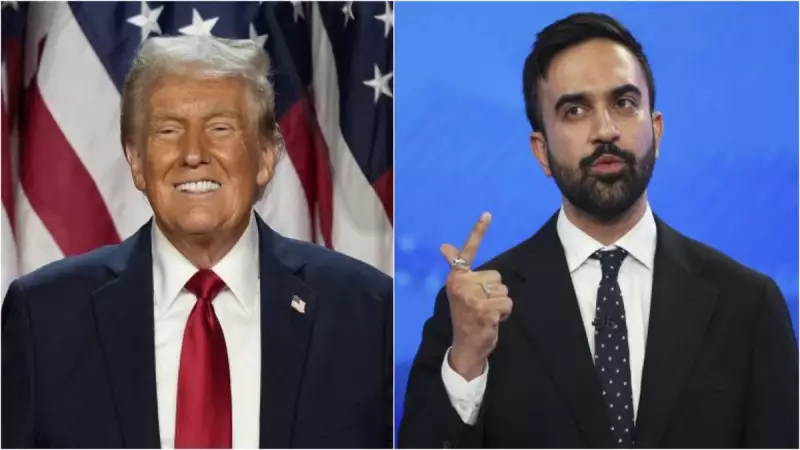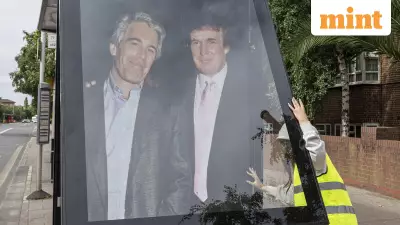
In a surprising political development that has captured national attention, former President Donald Trump has hinted at a potential meeting with New York City's Mayor-elect Zohran Mamdani. This revelation comes after months of public clashes between the Republican leader and the rising Democratic star, marking a significant shift in their previously contentious relationship.
From Political Rivals to Potential Collaborators
The unexpected suggestion emerged during Trump's recent public appearance where he addressed reporters about his future plans. The former president specifically mentioned Mamdani's name when discussing potential meetings with political figures across the aisle. This development is particularly noteworthy given the sharp ideological differences that have characterized their relationship until now.
Zohran Mamdani, who secured a landmark victory in the New York City mayoral election, represents the progressive wing of the Democratic Party. His political platform and public statements have frequently positioned him in direct opposition to Trump's policies and political approach. The months leading up to this unexpected overture were marked by public disagreements and political clashes that seemed to define their relationship.
The Background of Political Tensions
The history between Trump and Mamdani has been anything but cordial. Throughout the election cycle and preceding months, both figures engaged in public sparring that reflected the broader national political divide. Mamdani, as a progressive Democrat, frequently criticized Trump's policies and political style, while Trump and his supporters often targeted Mamdani as representative of what they considered extreme left-wing politics.
What makes this potential meeting particularly significant is the timing. Mamdani is preparing to assume one of the most visible and influential municipal leadership positions in the United States, while Trump remains a dominant figure in Republican politics and is considered a potential presidential candidate in future elections. Their interaction could have implications for national political dynamics and interparty relations.
The political landscape has been carefully watching both figures. Mamdani's election victory itself was seen as a significant moment for progressive politics in urban governance, while Trump continues to command substantial influence within the Republican base. The possibility of their meeting suggests a potential recognition of the need for dialogue across political divides, regardless of previous conflicts.
Potential Implications and Public Reaction
News of the potential meeting has generated mixed reactions from both political camps. Some observers see it as a positive step toward reducing political polarization, while others view it with skepticism given the history between the two figures. The development comes at a time when American politics remains deeply divided, making any cross-party engagement particularly noteworthy.
The specific agenda for such a meeting remains unclear, though it would likely address issues of mutual concern regarding New York City's governance and potential areas where federal and municipal priorities intersect. Both figures have substantial constituencies to consider, and any interaction would be closely scrutinized by supporters and critics alike.
Political analysts are particularly interested in what this development might signal about the evolving nature of political relationships in the current American landscape. The fact that Trump initiated the suggestion of a meeting indicates a potential shift in strategy or relationship management approach from the Republican side.
As both figures navigate their respective political futures, this potential meeting could represent an important moment in post-election political reconciliation efforts. However, the details of when and where such a meeting might occur, and what specific issues would be discussed, remain subjects of speculation as both camps have yet to release formal statements confirming concrete plans.
The political world continues to watch for further developments in this unexpected potential collaboration between two figures who have until recently been positioned as ideological opponents. The outcome of such a meeting, should it occur, could have lasting implications for how political dialogue is conducted across party lines in increasingly polarized times.





